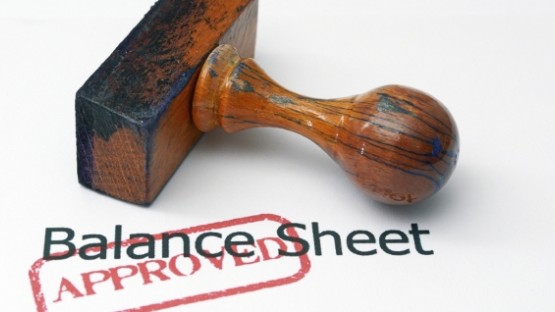
Looking for info on expat finance?
International Taxation

If you can spare the time, do some research on international taxation and the tax systems in your destination(s). If you speak the local language fluently and just have simple financial issues to deal with, you might save the fees for an advisor. In other cases, doing your homework on the local rules concerning international taxation could help you identify the topics to ask your consultant about.
Of course, matters of taxation – even “only” individual income tax – are vastly different from state to state. We can hardly presume to answer even the most basic questions on related rules in every country in the world. However, you can use this guide to prepare for meetings with your consultant, for an appointment at the tax office, or to find out more about international taxation on your own.
Administrative Details
First things first: Always make sure you know who is responsible for matters of taxation in your new country of residence. You should know the name of the national tax authority, as well as their online presence or address information.
More often than not, the fiscal authorities expect all taxpayers (or potential taxpayers) to register. So, check if this is necessary, what it entails, and who should handle it (yourself, your employer, a lawyer, etc.). Don’t hesitate to ask which documents you require, and file all your paperwork on the registration process. If you get a tax ID, this is especially important.
Also find out which local tax office handles your tax return. Not only should you have contact details and opening hours available – it’s even more useful to know the name of your direct contact. Now you will find out if the language barrier is an obstacle to communicating with the tax office and/or filling out your forms. If that’s the case, you’d better start looking for a consultant sooner rather than later, and let them take care of taxation for you.
While making enquiries with the local authorities, seize the opportunity to gather more information that could be relevant in the future. You may have to prove to the fiscal authorities back home that you’ve paid your taxes abroad. In this way, you will avoid double taxation, according to existing treaties, or can claim tax credits in your country of origin.
For this purpose, ask at the tax office in your new home about official receipts for international taxation. When will you get them? Which period do they cover? Do they clearly state how much you have paid, and on which income? Is a certified translation necessary?
Furthermore, when you return to your home country, a tax clearance procedure might be in order. It’s better to figure out as early as possible if that is the case and what you should do.
Taxation as an Expat: The Basics
Once you know how the administrative aspect of taxation abroad works, it’s time to focus on the actual details of international taxation. Here’s a list of questions you need to answer:
- When does the fiscal year start/end?
- Is doing a tax return voluntary or mandatory?
- If you are married, can you hand in a joint return with your spouse?
- When is the deadline for sending in your forms? Is an extension possible?
- Will there be fines for forgotten tax returns or taxes not paid / paid too late?
Obviously, not all jurisdictions levy the same kinds of taxes according to their fiscal law. When you start delving into matters of taxation, these are the most common sorts you may encounter in your new place of residence:
- capital gains tax
- property tax
- wealth tax
- inheritance/estate/gift taxes
- income tax
Self-employed foreign residents or small business owners living abroad might also have to take sales tax/VAT or corporate taxation into account. Moreover, while social security contributions aren’t necessarily called “tax”, they may be deducted from your salary or taken out of your gross earnings.
Income Tax: Local, National, Global?
For expats, taxation of personal income plays the most important role in international taxation. In your new place of residence, income tax might be due on more than one level. Switzerland is the best-known example: Such taxes are due to the federal government, as well as to the canton and the municipality where you reside.
Furthermore, it’s essential to know if you have limited or unlimited liability in your temporary home abroad. For instance, you could be taxed on your income worldwide, on local sources only, on foreign income transferred to that jurisdiction, etc. Tax liability frequently depends on fiscal residency in various jurisdictions.
Personal Income Tax: Sources and Deductions
For all expatriates, a detailed list of income sources or assets comes in handy now. It helps to get an overview of the different kinds of income you receive and makes it easier to fill out the right forms. Usually, international tax law recognizes most of the following sources:
- income from employment, including extra payments (overtime, bonuses, commissions, severance pay, gratuities, etc.), as well as benefits-in-kind (company car, housing, etc.)
- income from self-employment
- income from agriculture, forestry, and/or mining
- pensions and annuities
- government benefits (e.g. parental leave, unemployment benefits)
- alimony and child support
- income from property (e.g. rent)
- income from savings and investments (e.g. interest, dividends)
In addition to listing everything you earn, you should also check which kinds of deductions the respective law allows. There can sometimes be numerous potential deductions beyond a non-taxable exemption or personal allowance. These might include, for example:
- health insurance premiums
- payments to private pension plans
- medical bills
- costs for childcare or household help
- expenses related to caring for financial dependents (children, elderly relatives)
- business-related expenses (e.g. membership fees for professional associations, work uniforms, costs for further education)
- donations to charities
- school fees
- interest on mortgage payments, etc.




















